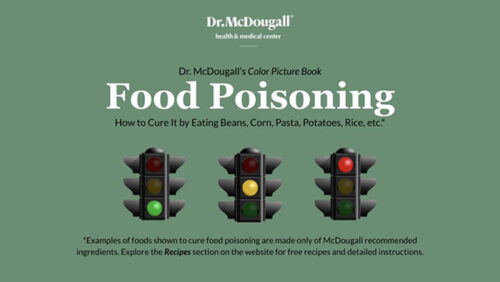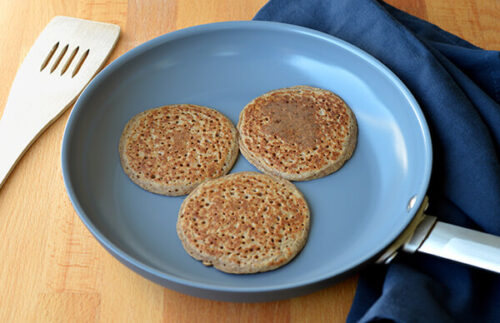Recent Media Appearances from the March 2004 Newsletter
The March 2004 issue of the Mayo Clinic Proceedings medical journal published a letter to the editor from me which should help all doctors (and their patients) understand why they should not be recommending the Atkins diet.1 This letter was in response to an article by James Hays in the November, 2003 issue of the same journal which supported the Atkins diet for losing weight and lowering risk factors, like blood cholesterol.
I wrote, knowledge of the actual mechanism causing these apparent benefits should discourage doctors from recommending this approach to their patients. Followers of this kind of diet complain of reduced appetite, nausea, and fatigue, all symptoms of illness, which in turn results in a natural reduction in daily food intake. Expected consequences of the adverse effects of a low-carbohydrate diet are that individuals will subsequently eat smaller amounts of red meat, poultry, fish, and cheese, i.e., the basic components of these low-carbohydrate diets. The end effects are that people consume less saturated fat, cholesterol, sodium, animal protein, and fewer calories. Signs of improved health appear to accrue, as measured by changes in a variety of risk factors, e.g., cholesterol, triglycerides, uric acid, glucose, blood pressure, and body weight. Hence, the patient is declared healthier. However, this is not necessarily a correct assessment. Similar benefits, for similar reasons, are seen when patients undergo cancer chemotherapy, and physicians do not brag about these results.
This sickness-induced, semi-starvation mechanism for weight loss and improved risk factors is confirmed by research on children with seizures who are treated with a similar ketogenic diet.2 In this case, the children are forced to eat enough of these unhealthy foods to meet their caloric needs and their total cholesterol increased on average by 58 mg/dl and LDL bad-cholesterol increased by 50 mg/dl; and their HDL good cholesterol decreased.
My conclusion was, In simplest terms, low-carbohydrate diets exaggerate consumption of the unhealthiest components of the Western diet (animal protein and fat) to a level that makes people sufficiently ill to lose their desire to eat, and expected changes follow. The alternative is to encourage people to eat foods that promote both ideal body weight and health those from a high-carbohydrate, low-fat diet.
This article is available from your libraries (local, university and hospital) and may serve to help friends understand why they should not be following this approach even temporarily.
1) McDougall J. Effects of a low-carbohydrate diet. Mayo Clin Proc. 2004 Mar;79(3):431
2) Kwiterovich PO. Effect of a high-fat ketogenic diet on plasma levels of lipids, lipoproteins, and apolipoproteins in children. JAMA. 2003 Aug 20;290(7):912-20.
Neal Cavuto Cavuto on Business TV show Fox News Channel (3-13-04)
A head to head debate on the Cheeseburger Bill a law that exempts the food industry from lawsuits. My position was that even Neil Cavuto cannot keep himself out of trouble (as smart as he claims he is) so how is the average person to protect himself (herself) and family from lies from the food industry? Neil Cavuto is obviously overweight and suffers from a deadly dietary disease, multiple sclerosis (MS).
This interview follows one he did with me on February 12, 2004 about Atkins medical records (See my February 2004 newsletter for more on this subject). His show treated me very unkindly (even turning off my microphone when I tried to speak) so you may find my comments about his poor health direct but they are deserved after his rude conduct.
For more information on the dietary connection with MS see my web site article: Interview with Roy Swank, MD, founder of the Low Fat Diet treatment for multiple sclerosis.
Link to the interview available only until April 13, 2004 (press the picture, then the play button below the picture):
http://mms.tveyes.com/ExpandGuest.asp?ln=23804.
PS: Neil Cavuto sent me a handwritten note after this show (3/15/04). He thanked me and invited me back and then wrote, You do know how to light up our airwaves and e-mails! Great exchange.
You can write Neil and tell him what you think atneil.cavuto@foxnews.com.
The New York Times Restates McDougalls Conclusions
(without credit given)
Gina Kolata, science writer for the New York Times, wrote an article entitled, New Studies Question Value of Opening Arteries, that was published in the Times on March 21, 2004. In this article she tells us, A new and emerging understanding of how heart attacks occur indicates that increasingly popular aggressive treatments may be doing little or nothing to prevent them. The old idea was this: Coronary disease is akin to sludge building up in a pipe. Plaque accumulates slowly, over decades, and once it is there it is pretty much there for good. Every year, the narrowing grows more severe until one day no blood can get through and the patient has a heart attack. Bypass surgery or angioplasty opening arteries by pushing plaque back with a tiny balloon and then, often, holding it there with a stent can open up a narrowed artery before it closes completely. And so, it was assumed, heart attacks could be averted. Instead, they say, heart attacks occur when an area of plaque bursts, a clot forms over the area and blood flow is abruptly blocked. In 75 to 80 percent of cases, the plaque that erupts was not obstructing an artery and would not be stented or bypassed. The dangerous plaque is soft and fragile, produces no symptoms and would not be seen as an obstruction to blood flow. Heart patients may have hundreds of vulnerable plaques, so preventing heart attacks means going after all their arteries, not one narrowed section, by attacking the disease itself.
So am I assuming Gina Kolata copied directly from my 1985 book, McDougalls Medicine A Challenging Second Opinion, or my 1996 book, The McDougall Program for a Healthy Heart? No. In both books I clearly stated the exact same conclusions (with a lot more detail). I think she finally took the trouble to look at the science, and found, as anyone would discover, that the heart business is off track and millions of people are suffering unnecessarily. If my work had changed public opinion 20 years ago, then 5 million coronary artery bypass operations and another 6 million angioplasty surgeries in the US alone might have been avoided. And if people had taken my dietary and lifestyle advice seriously two decades ago then 20 million more people in the US could have delayed or avoided heart disease all together.
I am pleased that the New York Times writer, Gina Kolata, has revealed the truth once again but dont think for a minute that this will be even a tiny bump in the road for the $300 billion a year heart disease business.
http://www.nytimes.com/2004/03/21/health/21HEAR.html
McDougall MD on TV (TBN) Every Week
The TV show McDougall, MD is reaching new markets. This show has played for the last 10 years nationally, and now Trinity Broadcasting Network (TBN) is airing it worldwide on hundreds more stations (covers 95% of the world market). This opportunity may lead to a whole new series with brand new shows starring, of course, me (John McDougall, MD).
The show plays every Tuesday at 8:30 AM PST (11:30 AM EST, etc.). You can watch it or set your recorder. Look at your station guide to find TBN for example, Direct TV satellite is station 372.
For us to continue, TBN needs to hear that you are interested in viewing.
Please write to TBN (Trinity Broadcasting Network), Attn: McDougall, PO Box A, Santa Ana, CA 92711 or by e-mail to: comments@tbn.org. Attn: McDougall.
Recommended Articles

Dr. McDougall’s Color Picture Book: "Food Poisoning"

Cooking Without Oil






Join the Conversation!
Have a question, a helpful tip, or a story from your journey? Add it below - your voice matters.